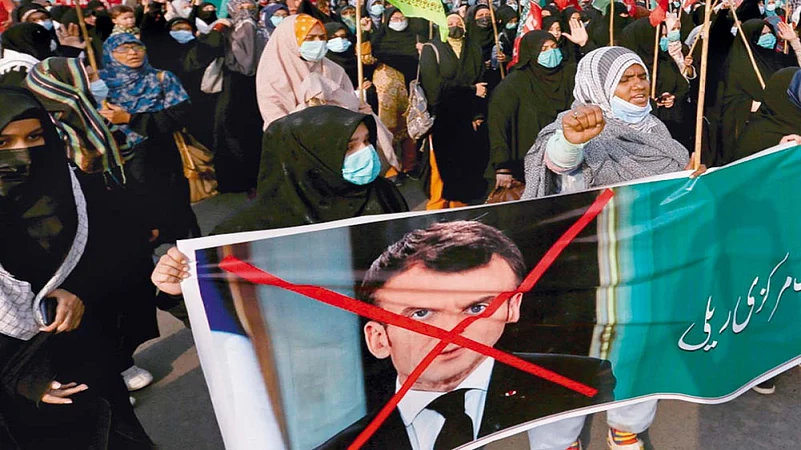Some countries in the ‘enlightened’, democratic West, champion of freedom of expression, allow the lampoonig of Islam’s prophet. So why is France singled out for protests across the Muslim world, and so often a target of violence from extremists? Its brutal colonial past, staunch secular policies and tough-talking president, seen as insensitive towards Islam, play a role, reports the Associated Press. As France mourns three people killed in a knife attack at a Nice church on October 29, there are several reasons why the country faces such unrest. France has the largest population of Muslims in Western Europe, over five million, a legacy of its colonies in Africa and West Asia. But the country’s efforts to integrate Muslim immigrants have faltered. The French doctrine of colourblindness is intended to ignore ethnic/religious backgrounds in the name of equalite, but in reality, the ideal often fuels discrimination against those who look, dress or pray differently from the historically Catholic majority. Thus, Muslims are over-represented in France’s poorest neighbourhoods and in its prisons, breeding angry outcasts who think their racist homeland disrespects Islam. French-born youth were behind much of the worst bloodshed in recent years, many of them linked to the Islamic State group. Again, French military intervention against Islamist radicals in its former colonies—in Mali and Syria, and in the Sahel region of Africa—fuels anger and online appeals from IS, Al-Qaida and other extremists for retaliation on French soil.
The anger of French Muslims over the recent republication by French satirical newspaper weekly Charlie Hebdo of caricatures depicting the Prophet Muhammad has to do with the license for such acts under the French concept of secularism (laicite), which aims for the peaceful coexistence of all religions. Crucifixes were at one point torn from classroom walls in France. State imposition of secular rules on Islamic practices—the 2004 banning of headscarves and the 2011 law banning face veils—made Muslims feel stigmatised. Centrist president Emmanuel Macron has stoked the unrest, partly because of a planned law meant to crack down on Islamist fundamentalists. After the recent attacks, his government expelled Muslims accused of preaching intolerance and shut down groups seen as undermining French laws. Macron’s words have provoked outrage too: he said the planned law was aimed at Islamist ‘separatism’, raising fears of further alienation. At a memorial for a teacher beheaded for showing the prophet caricatures to his class, Macron’s speech extolled tolerance, but he drew ire for saying, “We won’t renounce the caricatures” and that France should “diminish Islamists”.

























